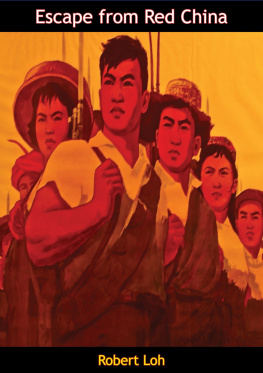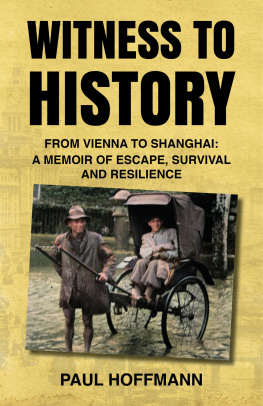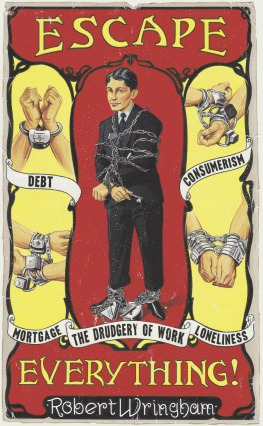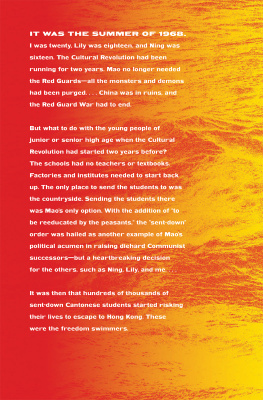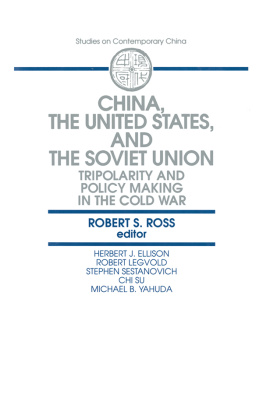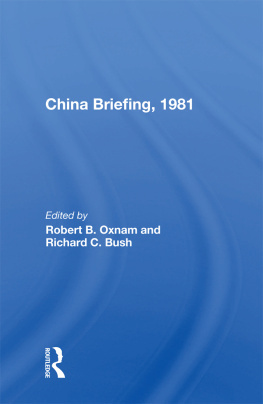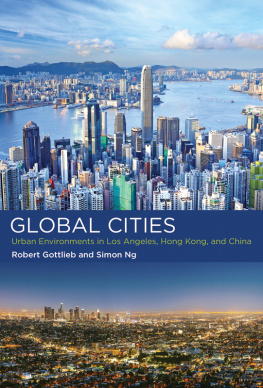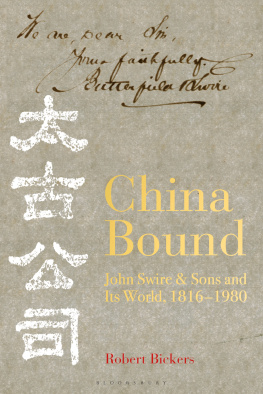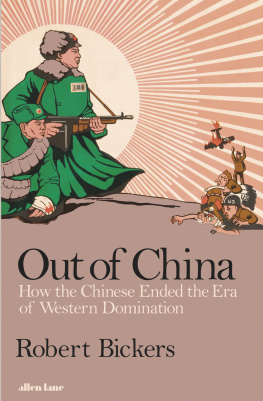This edition is published by Muriwai Books www.pp-publishing.com
To join our mailing list for new titles or for issues with our books muriwaibooks@gmail.com
Or on Facebook
Text originally published in 1961 under the same title.
Muriwai Books 2017, all rights reserved. No part of this publication may be reproduced, stored in a retrieval system or transmitted by any means, electrical, mechanical or otherwise without the written permission of the copyright holder.
Publishers Note
Although in most cases we have retained the Authors original spelling and grammar to authentically reproduce the work of the Author and the original intent of such material, some additional notes and clarifications have been added for the modern readers benefit.
We have also made every effort to include all maps and illustrations of the original edition the limitations of formatting do not allow of including larger maps, we will upload as many of these maps as possible.
ESCAPE FROM RED CHINA
by
ROBERT LOH
as told to Humphrey Evans
TABLE OF CONTENTS
Contents
TABLE OF CONTENTS
FOREWORD
WHEN I agreed to write this book with Robert Loh, he insisted that I should depict him in such a way that the readers would despise him. He said that in Communist China, no one with honor, integrity and honesty could retain these virtues and survive; because he did survive, he must lack these virtues and therefore be despicable. If the readers simply learn that only an utter scoundrel can live in the New ChinaLoh believes stronglythey will have gone far toward understanding Chinese Communism.
Loh learned to understand Chinese Communism the hard wayhe lived it. He lived in constant danger, and mere survival required him to be utterly ruthless. Nevertheless, he clawed his way from near the bottom of the social scale to a position of considerable importance.
The story of Lohs life in the New China is not pretty, but it gives us a vivid detailed picture of the society which is evolving under Marxist-Leninist Maoism. For this reason alone, we can be grateful that Loh fought to survive. Few of us can imagine living in a society which repudiates the basic human values, but I believe that most otherwise decent people would behave much as Loh did. I doubt if any Western reader will consider that Lohs behavior was reprehensible. He himself never lost awareness of the human values, and his struggle was for the chance to live again as a decent human being. Moreover, in his effort to endure, Loh never betrayed or endangered others.
This book, in fact, could not be written until after certain central figures in the story were dead. Other characters could be protected adequately by giving them changed names, by disguising their physical appearances, and by giving them different jobs or titles. For others who would not suffer reprisals because of the publication of Lohs story, we nevertheless changed names; this was partly to save them possible embarrassment, but also in the effort to simplify Chinese names for Western readers.
Westerners find the Chinese names confusing because of their unfamiliar sounds, but the names themselves are remarkably simple; most of them consist of a one-syllable family name followed by a two-syllable given name. To help readers identify the characters easily, we generally have called men by only their one-word family names and women by their two-word, hyphenated given names.
The name problem was simple, however, compared to the problem of presenting the characters themselves accurately. Loh speaks English well enough, but to explain to me so that I could put into English precisely what the characters said, did and felt was infinitely complicated; often I had to write and rewrite the same scenes innumerable times in order to achieve an effect that was neither over-nor understated.
Both Loh and I believed that this effort to be accurate was extremely important. Anyone who has lived in the New China hates the regime, and his temptation is to pour out his bitterness in violent terms. The one really startling aspect of Communist China, however, is the fact that a small group of men has been able to achieve complete control over 650 million unwilling people. To make this achievement understandable, the Communists reasons for attempting it, the techniques they developed for the purpose, and the discipline they acquired in the process must be described rationally and truthfully. In short, this book is not intended to lament what has happened in China; it is intended to picture how and why it happened.
Lohs story is especially suitable for this purpose, because his experiences brought him into direct contact with many different aspects of Communist China. Along with thisand just as importantis the fact that Loh is one of the few escapees who did not leave close family members behind on the China mainland. Actually he is the only Chinese refugee I have found who can describe his experiences fully without fear that reprisals will be taken against relatives.
I am sure that the reader will agree with me that his experiences were extraordinary indeed.
HUMPHREY EVANS
CHAPTER 1
Still must the wounded heart seek peace;
Interminable are my wanderings.
CHU YUAN
I CAN RECALL the moment when living in Communist China became intolerable for me. It was at 11:05 P.M. on July 7, 1954. The night had been stifling in Shanghai, and rain had fallen earlier. When I came out of the Democratic League Building into Bubbling Well Road, the wet streets seemed to make the air too thick to breathe.
I was exhausted. I had just been to the third meeting in six days of my Communist-sponsored political discussion group. After a long day in my office at the flour mills, the physical effort of attending these meetings was bad enough, but the strain was worse. The smallest errora mistaken response, a wrong gesture, a slip of the tonguecould mean catastrophe. People who live with fear eventually lose their awareness of it, but the tension remains and has serious effects. What bothered me most was constant fatigue. I desperately needed more rest in order to stay sufficiently alert for the continual struggle to survive.
In this, however, I was no different from the others in the crowd I joined that night in Bubbling Well Road. As always, I was surprised to find so many people still up at this hour. In the old days, of course, the streets had been crowded at every hour. Neon signs would have been garishly bright, and the people would have been dressed in many different styles and colors. They would have milled about, some moving quickly and others slowly. And above the traffic sounds, their voices would have been heard, chattering, calling, cursing, shouting, laughing.
But now no one spoke. The only sound was the shuffling of thousands of feet. Everyone moved at the same tired pace. Everyone had the same worried look and wore similar drab clothes. The only light came from the street lamps that made dim yellow pools at regular intervals along the wet pavement. Occasionally a motorcar swished by, arrogantly important.
Like me, the others still up had been to the grimly serious political meetings and were intent only on getting to bed.
I had gone the few paces to the corner of Gordon Road, however, when I suddenly came alive. Moving toward me out of the shadows was a face I knew better than any other. It belonged to Li-li. I had not seen her for two years, but she was seldom out of my thoughts. Even in a shapeless uniform, she was beautiful. From Li-li I had learned how close it was possible to be to another human being; I think that neither of us was ever really complete without the other.


